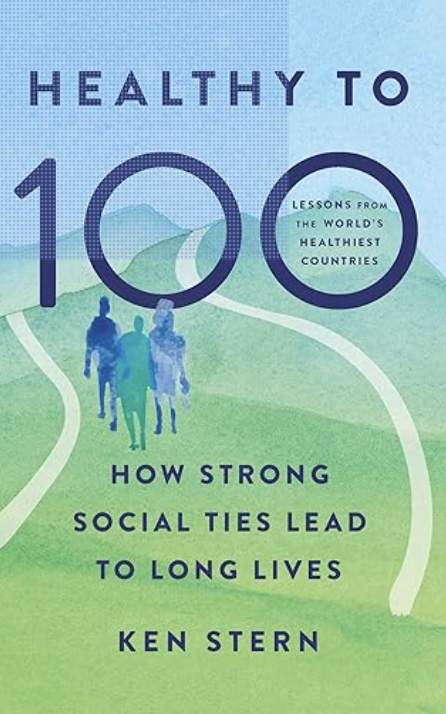Ken Stern’s “Healthy to 100: takes you on a journey abroad to discover why some populations outlive others—and what we can learn from them. Visiting communities in Japan, Costa Rica, Italy, and Greece, Stern uncovers practical steps that challenges conventional Western approaches to health and longevity.
The book’s primary message is counterintuitive – the longest-living people aren’t obsessed with health. Instead, they’ve woven wellness into their daily lives through consistent habits and practices, leaning more on common sense than expensive interventions, trackers and rigid protocols.
The Japanese Approach
Okinawa, Japan, home to more centenarians per capita than virtually anywhere else, offers perhaps the most useful lesson: hara hachi bu, or eating until 80% full. This practice creates a natural calorie restriction without the burden of dieting. Stern explains how this mindset, combined with Okinawans’ plant-based diet, contributes to remarkably low rates of heart disease and cancer. The lesson isn’t about exotic superfoods—it’s about mindful eating and stopping before you’re stuffed to the gills.
Mediterranean Movement and Social Bonds
In Sardinia’s mountain villages and Greece’s Ikaria, Stern identifies another crucial pattern: natural movement built into daily routines. These populations don’t “exercise” in the going to the gym or hiring a personal trainer way. They walk up steep hillsides, tend to gardens, and maintain active social lives well into their 90s. The lesson for readers? Redesign daily life for opportunities for activity— choosing to take the stairs, walking daily, working in the garden—rather than trying to make for sedentary days with intense workouts weekend warrior style.
Hugely important is the Mediterranean emphasis on community. Stern highlights how regular social interaction, multigenerational households, and a strong sense of purpose protect against both physical and cognitive decline. The practical application is to prioritize real connectivity – face-to-face relationships and community involvement over online connectivity.
Costa Rica’s Philosophy
In Costa Rica’s Nicoya Peninsula, Stern discovers that stress management may be as important as diet and exercise. The pura vida mindset—roughly translated as “pure life” or taking it easy—reflects a cultural ability to let go of stress and maintain perspective. Combined with strong family ties and physical labor that continues into old age, Nicoyans demonstrate that mindset matters. Readers can adopt this by cultivating mindfulness and resilience, refusing to let minor stressors dominate daily life.
The Synthesis
The book’s ultimate message is optimistic and inspiring: longevity isn’t primarily about genetics or expensive interventions. It’s about consistent, moderate habits embedded in community and purpose. Move naturally throughout the day. Eat mostly plants and stop before you’re full. Maintain strong social connections. Find meaning that extends beyond yourself. Manage stress through perspective rather than avoidance.
Ken Stern’s book shows how these principles work synergistically in real life in countries delivering extraordinary results on longevity. The book challenges you to think beyond health hacks toward creating lives naturally with smart practices that are conducive to longevity, emphasizing that the best health interventions don’t have to feel like interventions at all. And we can all start today.
___________________________
Listen to my podcast conversation with Ken Stern
Explore more interesting and useful conversations on The Retirement Wisdom Podcast
Learn more about our upcoming Design Your New Life in Retirement Group Programs

